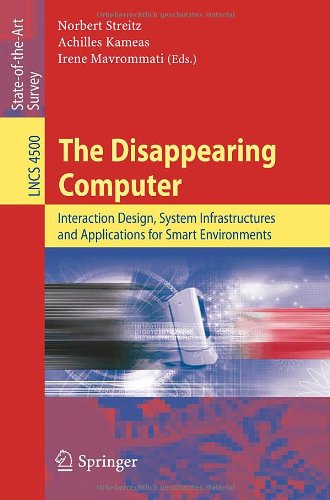

Most ebook files are in PDF format, so you can easily read them using various software such as Foxit Reader or directly on the Google Chrome browser.
Some ebook files are released by publishers in other formats such as .awz, .mobi, .epub, .fb2, etc. You may need to install specific software to read these formats on mobile/PC, such as Calibre.
Please read the tutorial at this link: https://ebookbell.com/faq
We offer FREE conversion to the popular formats you request; however, this may take some time. Therefore, right after payment, please email us, and we will try to provide the service as quickly as possible.
For some exceptional file formats or broken links (if any), please refrain from opening any disputes. Instead, email us first, and we will try to assist within a maximum of 6 hours.
EbookBell Team

5.0
58 reviews“The-computer-as-we-know-it” will have no role in our future everyday lives. This is the position taken in this book which elaborates how it will be replaced by a new generation of technologies, moving computing off the desktop and ultimately integrating it with real world objects and everyday environments. Computing becomes thus an inseparable part of our everyday activities while simultaneously disappearing into the background. It becomes a ubiquitous utility taking on a role similar to electricity – an enabling but invisible and pervasive medium revealing its functionality on request in an unobtrusive way and supporting people’s everyday activities.
As members of the Steering Group of the EU-funded Disappearing Computer research initiative, the editors of this book successfully assembled a collection of 13 elaborate chapters and three forewords that address the issues and challenges in this area. All authors are prominent researchers who set out investigating, developing and deploying future, people-centred smart environments. This book provides a unique combination of concepts, methods and prototypes of ubiquitous and pervasive computing reflecting the current interest in smart environments and ambient intelligence.
Excerpts from the three forewords for the book:
Thierry van der Pyl and Thomas Skordas from the European Commission state that: The Disappearing Computer initiative anticipated and pioneered the concept of ambient intelligence … and allowed to advance the boundaries of what is possible with the computer today.
Gregory Abowd from GeorgiaTech in the US writes about this research: While substantial progress was shown on the creation of information artefacts, it is the new behaviors and user experiences that promise long-term impact.
Finally, Emile Aarts from Philips Research comments on the relationship of ambient technology and people’s behavior: "This current volume undoubtedly provides a major contribution to fill up this gap of knowledge."